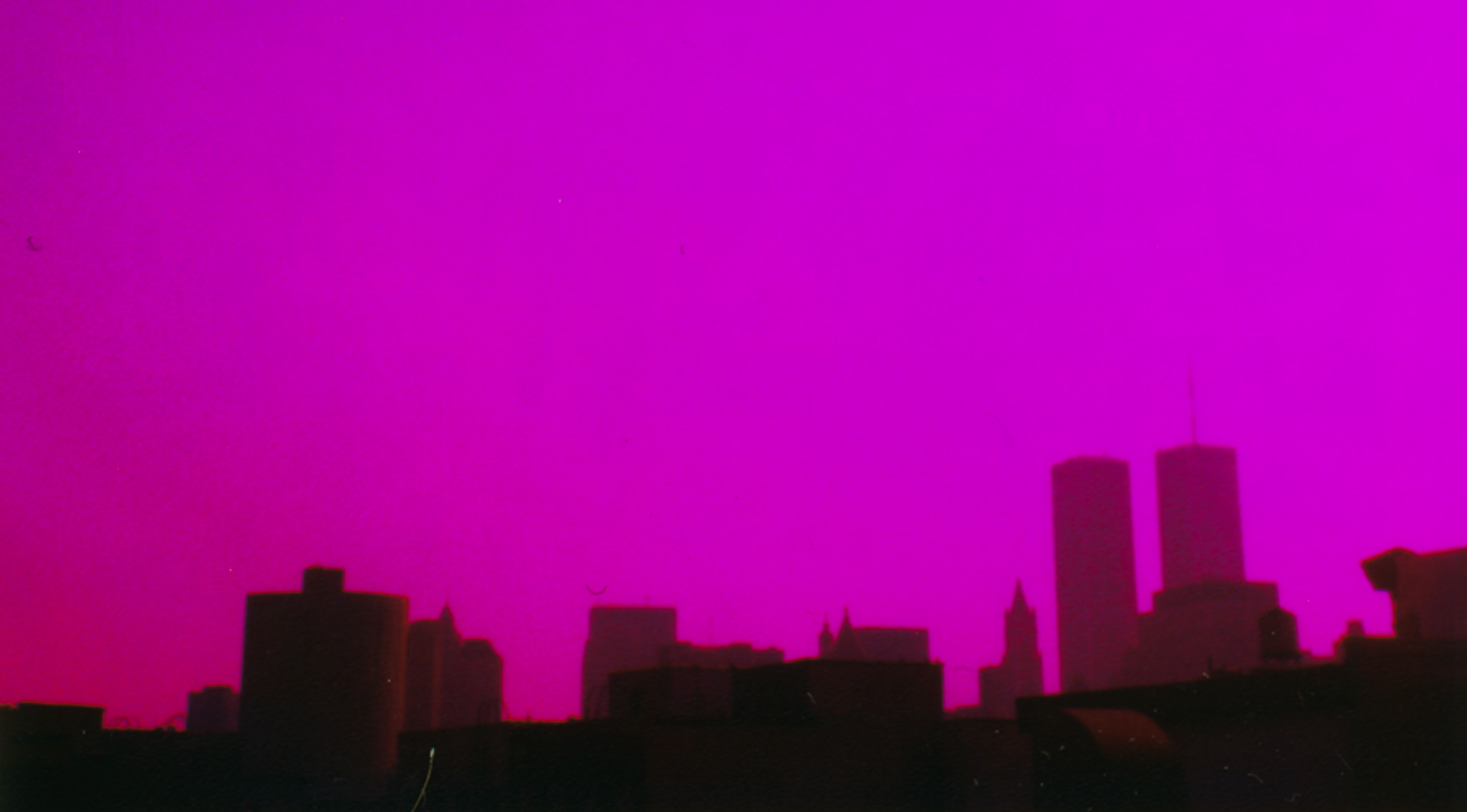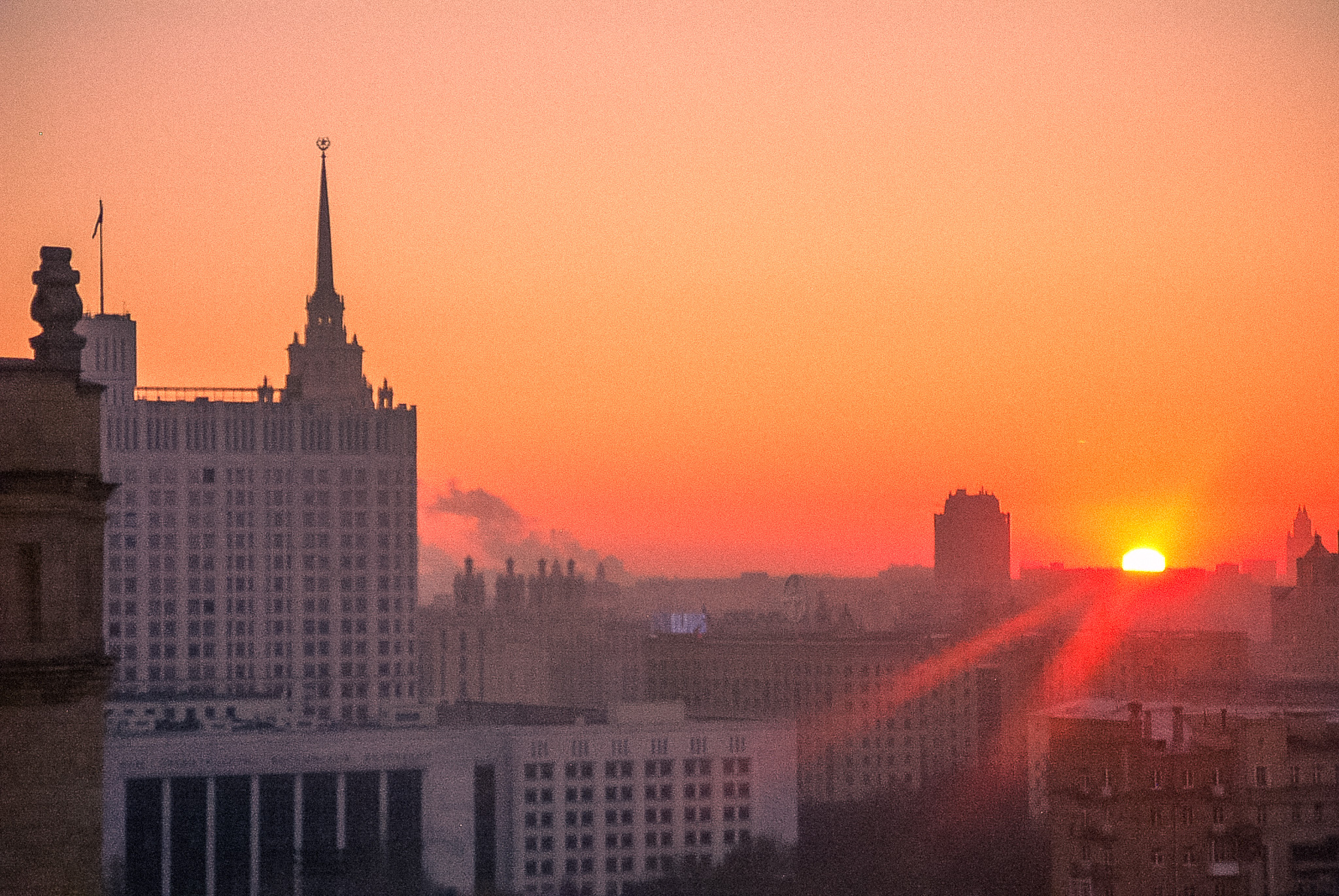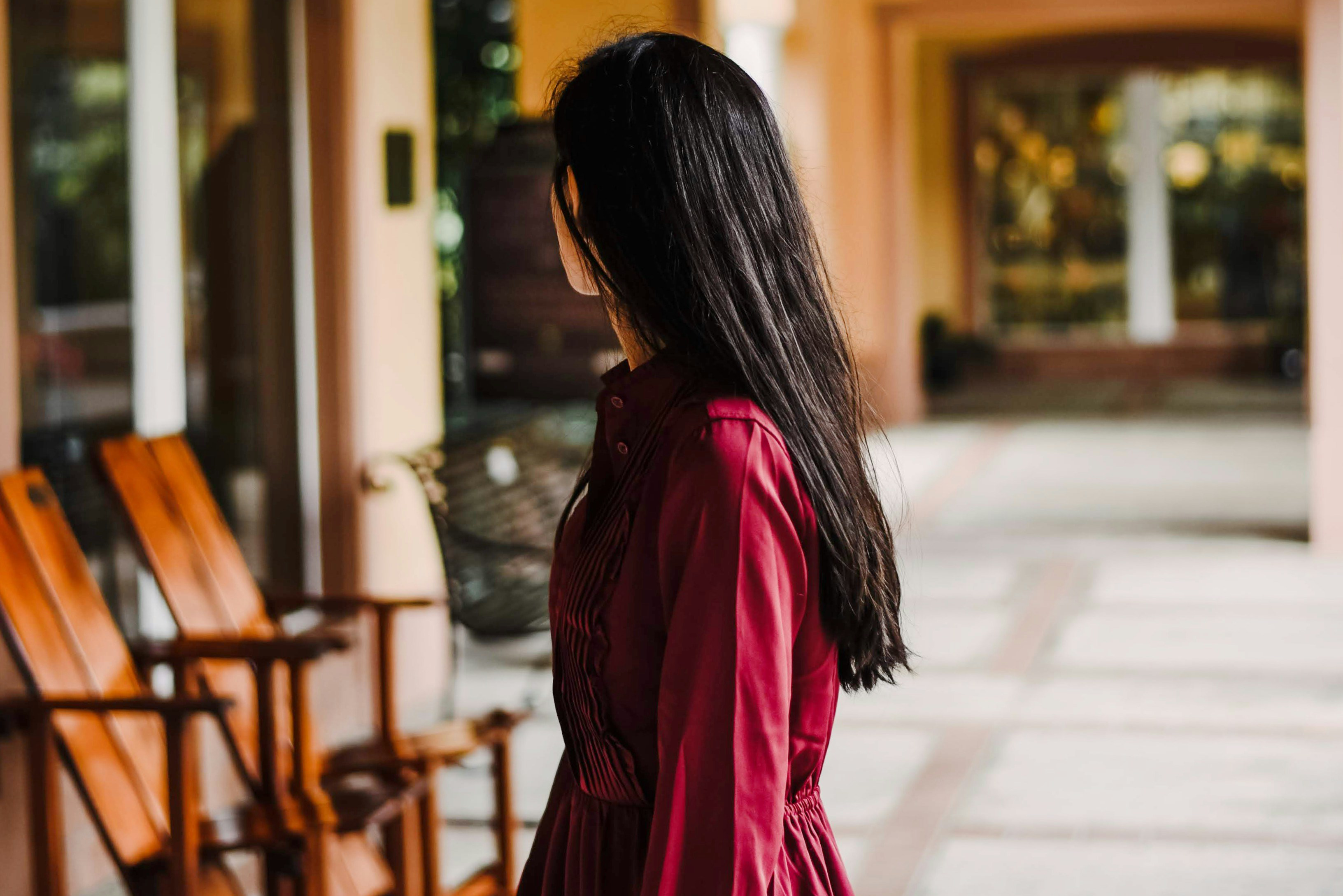It’s been a while since I was in New York. It used to be my home, and who would have thought I’d one day trade it for Moscow? I still love New York deeply and enjoy spending time in the Village and the Lower East Side, the neighborhoods I lived in. “Manhattan, this loud monster. How can anyone enjoy living here?” I wonder as I step out of my client’s office on Park Avenue. The jet lag is still hitting me hard, and Neal, my client, prefers to start the day with early morning meetings. He’s the dermatologist of New York’s rich and famous. Off the record, he tells me that most of his income comes from Botox and other rejuvenation treatments. It seems to be working well for him—Neal is part of New York’s high society. He owns a house in New Jersey with a private runway and a hangar for his plane. His son attends an elite university, and Neal even runs his own company specializing in luxury skincare products.
We met years ago when I still lived in New York. Back then, I was already advising him and managing his website and online shop, where he sells his skincare products. Since I left New York in 2003, Neal has flown me out several times a year for work meetings—sometimes to New York, other times to Paris or London.
It’s been a long, exhausting day. For three days, I’ve been working with Neal and his marketing manager on a relaunch of his online shop. Now everything is finalized, and my work in New York is done. I could head home, but I’ve decided to stay a few extra days to enjoy the city I once called home.
New York has changed. The city feels more American and superficial now. Or maybe I’ve changed? Perhaps it’s because I now live with the old Cold War adversary in Russia. Who knows? Somehow, New York feels almost unfamiliar to me. It’s not the city I once loved. A wave of sentimentality washes over me. I find myself longing for my party days in the East Village: the quirky people, the tiny apartment I shared with Kina, a runway model. Kina was a stunning woman—half Belgian, half Congolese. She also had a fiery African temperament and was a bit of a drama queen. But that’s another story.
I ask myself why New York has such a magnetic pull on people. Why do they, myself included, come here to try to make a life? The city can be so harsh and unforgiving. Everything is ridiculously expensive. You work yourself to the bone just to cover rent and groceries. On top of that, you live amid noise and grime. Is it worth it? Why? For what?
I’m standing at the curb, enjoying the last rays of sunlight before they disappear behind the skyscrapers. I don’t care much for Park Avenue or the Upper East Side. This is where the old-money New Yorkers live—bankers, doctors, executives. It’s clean and boring here. All around me are conservative Americans voting either Republican or Democrat. Both parties are terrible. I wonder how a democracy can function with only two political parties. But that’s for Americans to worry about. I raise my hand to hail one of the many yellow cabs. I just want to get away from the city’s privileged sons and back down to the gritty parts—the Village.
Whenever I’m in New York, I stay with my friend Francois Portmann, a Swiss photographer who’s been living here for 25 years. Twenty years ago, the East Village was still a dump. It was even rough around the edges when I moved to New York in 1997. Back then, drug dealers stood on street corners, and the streets were filled with all sorts of characters: punks, rappers, Puerto Ricans, and rockers. All sharing the same neighborhood, more or less peacefully. Across from Francois’s apartment is still the Hells Angels’ headquarters, and from my room, I can watch the goings-on in front of their house. But even the East Village has been cleaned up. Punk clubs, tattoo parlors, and comic shops have closed, replaced by Starbucks and Urban Outfitters.
It’s the fate of almost every cool neighborhood. Eventually, they become trendy, the yuppies move in, and the prices skyrocket. Where punks once hung out, a woman in her mid-thirties now pushes a baby in a €1,000 McLaren stroller, sipping a latte from a green paper cup. “It’s a shame to see the Village go to the dogs like this,” Francois grumbles, but he’s resigned to it. He’s thought about moving too many times—maybe to Brooklyn, maybe back to Switzerland. But he’s lived in his little East Village maisonette on Avenue A between 3rd and 2nd for so long now that he can’t leave.
He’s put down roots, and those 60 square meters with a small terrace are now his home. You don’t uproot an old tree, even when its surroundings no longer feel right and adapting becomes a struggle.
Besides, Francois has lived with Shannon since his early days in New York—a gentle, steadfast Chinese woman, as constant as water itself. What would she do in the Swiss Alps? She was born in Queens, and her parents still don’t speak English. What would they do without Shannon? How could she leave her city? So Francois stays, even though he’s a nature lover at heart. I’ve never understood how he’s managed to endure life on the island of Manhattan for so long. It seems the foreign has become home for him.
It’s impossible to get a taxi, even though half of Park Avenue seems to consist of yellow cabs. None of them have the green light on, and when they do, the drivers ignore me. It’s rush hour, and the cars continue to zoom past. Normally, I’d just take the subway, but Neal had handed me a thousand dollars in cash as I was leaving, saying, “For expenses!” So today, I’m treating myself to a cab. I enjoy looking out of the window during the ride, letting my thoughts drift as I take in the Manhattan streets. It doesn’t matter if we get stuck in traffic and the meter keeps ticking. I don’t have much planned for the rest of the day—maybe a cold beer with Francois on the terrace, reminiscing about the old days, and a joint to round it off.
Finally, a cab stops. I hop in and sink into the cold leather seat. “Hi! How are you?” the driver greets me with an Indian accent. On the dashboard, a small Stars and Stripes flag is perched. I glance at the license displayed in the partition behind the driver. His name is Mohammed Khan. So, not Indian after all. I almost made a mistake there; I’ve learned the hard way that mistaking an Indian for a Pakistani, or vice versa, is about the worst faux pas you can make.
“Salam,” I reply. “Ave A between 3rd and 2nd.” The driver pauses briefly. “Excuse me,” he says, “I don’t mean to offend, but the greeting ‘Salam Aleikum’ is reserved for Muslims.”
Now I fall silent, surprised—no, blindsided—by his frankness. The Muslims I’ve encountered in New York post-9/11 have tended to be more reserved. But this driver seems polite enough, without any malice. “Are you a Christian?” he asks, perhaps to keep the conversation going. Most cab drivers love to chat, whether in New York or anywhere else. I enjoy these exchanges; you always learn something about the other person.
I think about it. Am I a Christian? Baptized, yes. Protestant. But after confirmation, I kind of stopped caring. God? Sure, I believe he exists. An older gentleman with gray hair. Sometimes I try talking to him, especially when things are rough. But he never answers. Eventually, things get better, and I forget about the gray-haired man with the beard—until I find myself knee-deep in trouble again, pleading for divine intervention in the dead of night. The rest? Jesus? Angels? No idea. Am I a Christian? The church disgusts me. What do they even do with my church taxes? I haven’t canceled my membership yet because they do fund a few worthwhile social projects. Christian? Yes. Devout? No.
So how do I answer this question? The driver is waiting, so I say, “Yes, I’m a Christian! And I assume you’re Muslim, right?” A clumsy question, but it keeps the conversation moving. I wonder what he’ll say next. But the driver remains silent. He seems lost in thought, focused on the traffic. Maybe he doesn’t feel like talking to a nonbeliever, Christian or otherwise. Still, I press on: “It hasn’t been easy for you all since 9/11, has it?”
My driver remains silent.
I used to take taxis in New York even before September 11. Back then, diversity was still visible. I remember Sikhs with turbans or a professor from Nigeria with whom I once discussed Fela Kuti and his country’s politics on the way to the airport. Then, as now, there were many Bangladeshi and Pakistani cab drivers. They were proud of their culture and faith, often a little gruff but authentic. After 9/11, it seemed like there were only Americans driving taxis. Even the poor immigrant drivers from distant lands had to adopt an American identity and wave the flag. “You’re either with us or against us” became the prevailing mantra, one that seems to have ingrained itself into American society over time. Today, even a Pakistani taxi driver is an American first. His identity is tied to his decision to leave his homeland, seeking fortune in the distant embrace of America.
“You know,” my driver finally says, breaking the silence. “We Muslims share a lot with you Christians.”
“Really? Like what?” I ask, intrigued.
“We celebrate the birth of Jesus, for instance.”
“Seriously? Jesus?” I respond, surprised.
“Yes, Jesus exists in our faith too. He is a prophet—one of the most important, after Muhammad.” This was news to me. It’s getting interesting. “Jesus sits in paradise, in what you call heaven, next to Muhammad. He is his advisor. The Quran even states that Jesus will bring about the Last Judgment, the apocalypse.”
I have to admit, I’m clueless. Neither the Bible nor the Quran, with all its interpretations and additions, are familiar to me. I barely paid attention during confirmation classes and can just about recite the Ten Commandments.
“Interesting. So, do you celebrate Christmas like we do?” I probe, albeit superficially.
“Not exactly. We honor the day of Jesus’ birth, but it’s not as grand a celebration as it is for you.”
I decide to steer the conversation into deeper yet informal waters. “How do you get along with Americans?” I ask.
The driver takes a moment before responding. “It’s not easy. Many are kind, but there’s a lot of mistrust too. After 9/11, we were all seen as terrorists in their eyes. It took a long time to get used to constantly having to explain who I am and why I’m here. Some people still don’t listen. But America gave me an opportunity, and for that, I’m grateful.”
I nod thoughtfully. “It must be tough being labeled like that when you’re just trying to build a better life.”
“Yes,” he says. “But I’ve learned not to let it get to me. I’m here to give my family a better future. And you know, I truly believe that most people, no matter where they’re from, are good. It’s fear that makes them act otherwise.”
His words resonate deeply. It’s a simple yet profound truth, one that often gets drowned out by the noise and chaos of the world. We continue driving through Manhattan’s streets, and I let my gaze wander over the endless rows of skyscrapers.
“Why did you come to America?” I finally ask.
“For freedom,” he answers without hesitation. “In my home country, there was none. My father was imprisoned for criticizing the wrong people. Here, I feel like my children can have a real future.”
I lean back and let his words sink in. America, the land of endless possibilities. Yet everyone living here is fighting their own battle. I think back to my time in New York—to the hard days and long nights, the moments when I wondered if it was all worth it.
We finally arrive at Avenue A. “This is it,” I say, reaching into my pocket for cash. The driver turns and smiles. “Thank you for the conversation. It meant a lot.”
I hand him a generous tip. “Thank you for sharing your story with me. All the best to you and your family.”
He nods before driving off, the taxi slowly disappearing down the street. I watch until it fades into the distance. In that moment, I feel a strange sense of connection—with him, with the city, and with all the people who come here, chasing their dreams despite the hardships.
I stand in front of Francois’ building and press the buzzer. It’s late, and the day has left me reflective. Climbing the stairs, I already know I’ll return to this city, a place that never fails to surprise—both for better and worse.
I knock lightly on Francois’ door, and it swings open to reveal his familiar grin. “Finally back! How was your day on the Upper East Side? Did the yuppies swallow you whole?” His sarcasm hasn’t dulled with time. I laugh and slip off my shoes before heading into the living room.
The apartment is cozy, if tiny—classic New York. Books stacked on the floor, photos adorning the walls—a mix of urban landscapes and portraits Francois has taken over the years. “Have a seat; I’ve got cold beer waiting,” he says, motioning to the sofa.
I collapse onto the couch as Francois retrieves two bottles from the fridge. “So? Meet anyone interesting today?” he asks, handing me a beer.
“A taxi driver,” I reply pensively. “A Muslim from Pakistan. We talked about religion, the challenges he’s faced here, and his dreams. It was a strange conversation—honest but also heavy.”
Francois nods. “That’s New York for you. Everyone has a story. Some are beautiful, some are tragic. But it’s those stories that keep the city alive.”
I sip my beer and gaze out the window. The city sounds filter softly through the glass—a distant horn, the hum of a helicopter. From up here, the streets seem peaceful, almost surreal. It’s as if the city takes a brief pause before plunging back into its relentless chaos.
“You know, Francois, I sometimes wonder why I keep coming back,” I finally say. “New York has changed. The energy isn’t the same, or maybe I’m the one who’s changed. But something always pulls me back.”
Francois grins and leans back. “New York is like an old lover you never quite get over. She’s flawed, she drives you crazy, but you always return. Because she makes you feel like anything is possible.”
I chuckle softly. “Maybe you’re right. But I miss the old New York—the gritty streets, the rebellious people, the raw honesty. Now, everything feels so … polished.”
“That’s just the way things go,” Francois shrugs. “The world changes, and we do too. But the essence of New York, that unrelenting drive to achieve something great—that stays.”
We fall silent, sipping our beers and letting our thoughts wander. Finally, Francois picks up a small tin from the table and rolls a joint. “To cap off a long day,” he says with a mischievous grin. I nod and take a deep drag, the familiar warmth spreading through me.
“You know, I thought about Kina today,” I say suddenly. Francois raises an eyebrow. “The drama queen?”
I laugh. “Yeah, her. I wonder what she’s up to now. We had some wild times back then. She drove me insane, but I’ve never met anyone so full of life.”
Francois smiles. “Some people stick in your mind, no matter how much time passes. Maybe because they taught you something. Or maybe because they were just unforgettable.”
I nod in agreement, taking another drag and leaning back. The day’s exhaustion catches up with me, but I feel strangely content. It’s as if I’ve rediscovered a small piece of New York I thought I’d lost.
“You know, Francois,” I say quietly, “no matter how much I complain about this city, I think I’ll always come back. Because it inspires me, challenges me, and pushes me to my limits.”
Francois raises his beer. “To New York, the crazy old flame.”
I lift my bottle and clink it against his. “To New York.”



